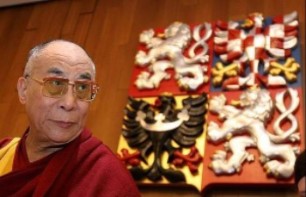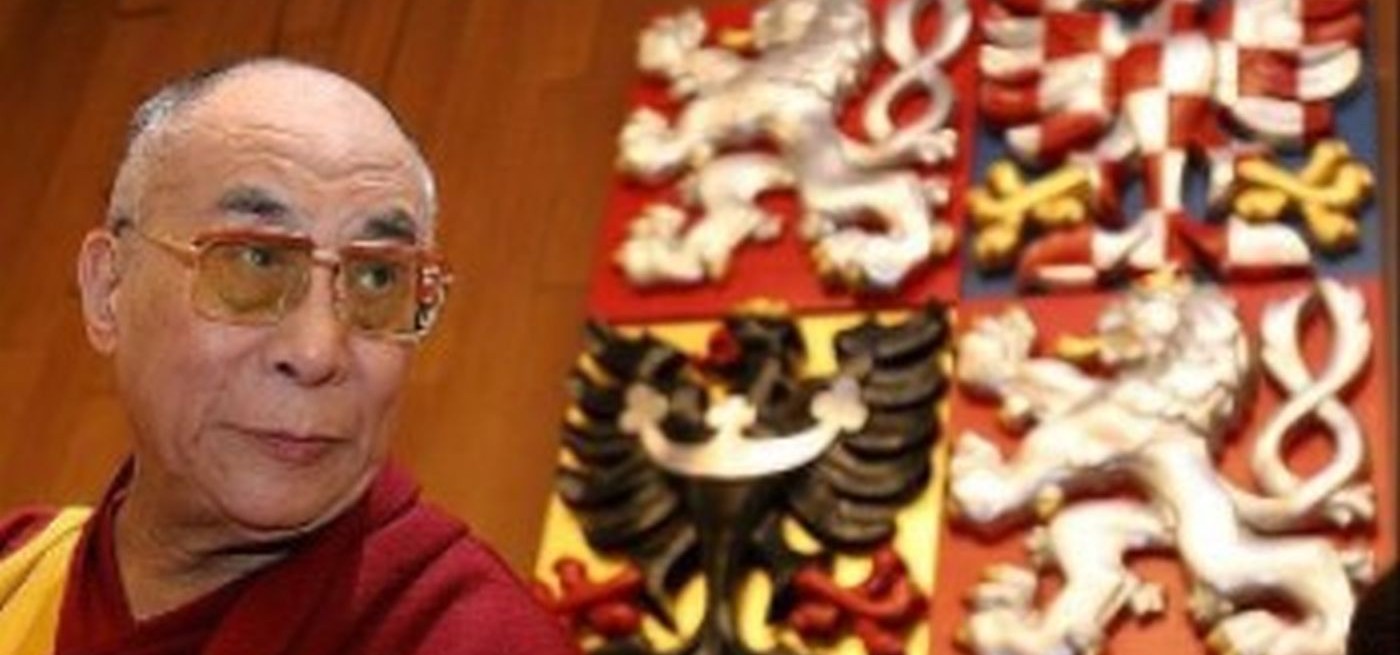Standing by Tibet
By Denis Burke
In a climate of improving official relations with China, some Czechs continue to vocally support the disputed region. by Denis Burke
5 December 2017
Few countries can boast visits from both the Chinese president and the Dalai Lama in the space of 12 months, as the Czech Republic did last year. That’s both because Beijing usually responds angrily when foreign politicians meet the Tibetan spiritual leader and because many European countries have ramped up their pursuit of Chinese investment, softening any support they had for greater autonomy for Tibet. The Czech Republic, however, is one of the very few that has managed to walk this tightrope.
In the early years after the fall of communism in 1989, that would hardly have been a surprise. The Czech Republic set out on an idealistic course, placing a concern for human rights at the heart of its foreign policy agenda.
“From1989 our position in the world was built by [former President] Vaclav Havel,” says Martin Bursik, a prominent advocate for Tibet who has served as minister of the environment and the leader of the country’s Green Party. “Because of Havel’s experience we understood the importance of solidarity from Western liberal democracies – from the free countries – with those who are living under a totalitarian regime. Based on this experience our foreign policy is to support and advocate for human rights anywhere in the world.”
For many Czechs, the Tiananmen Square massacre showed how their own authoritarian regime might have reacted to their demands for change. Mass protests toppled communist regimes across Central and Eastern Europe. China sent out the tanks.

The Dalai Lama during one of his visits to the Czech Republic. Image via Czechs Support Tibet/Facebook.
“When we were in trouble and the dissidents were oppressed here, we still remember that foreign politicians and writers, public intellectuals, and spiritual personalities supported Czech imprisoned dissidents, so many people believe our role is to help those less fortunate people who did not get rid of oppressive regimes,” says Rudolf Furst, a specialist in Czech-China relations at the Prague Institute of International Relations.
Havel’s close friendship with the Dalai Lama and the springing to life of Czech civil society in the 1990s cemented pro-Tibet sentiment in the post-communist Czech Republic.
A Change in Direction
China has not appeared overly concerned about Czech political condemnations, issuing mostly boilerplate responses.
But even as popular support remains strong, the backing of some government officials has given way to the kind of pragmatism that has characterized the policies of most EU countries in recent years.
“Official Czech support for human rights in China is a matter of the past,” says Martin Hala, one of the Czech Republic’s preeminent China experts. “Tibet was part of that trend, but that all started to change after Vaclav Havel died, and especially after President [Milos] Zeman came into office.”
Since winning the presidency in 2013, Zeman has made strengthening ties with China a major foreign policy goal. When Chinese President Xi Jinping visited Prague in March 2016, the two countries announced a new strategic partnership.
Xi’s trip, however, was overshadowed by pro-Tibet protests even before his delegation arrived. The road from Prague airport had been decorated with Chinese and Czech flags to welcome the president, but the Chinese flags were vandalized with black paint, torn down, or replaced with Tibetan flags the night before he arrived. Controversies also revolved about the police’s allegedly preferential treatment given to Chinese supporters over those backing Tibet. Zeman himself even called the latter group “mentally impaired” at one point.
That was not a one-off comment as Zeman is generally dismissive of Tibet supporters.
“[He] often responds to criticism of Chinese policies in Tibet by repeating the standard Chinese line about Tibet being a backward and cruel, feudal society before the Chinese takeover,” says Hala, who runs an organization called Sinopsis, which tracks Chinese activities in the Czech Republic. “The same argument is all over social media, portraying supporters of Tibet as naive and/or ignorant of Tibet’s realities,” he adds.
Hala described the average understanding of China and Tibet as “Quite poor, in general, but there are also many well-informed specialists. The challenge – that we’re trying to address – is to bring these informed voices into the public discourse, which has been dominated by political interests.”
Like Hala and his colleagues, Bursik and his wife Katerina Bursíkova are also trying to shift the narrative away from the focus on business ties, which, critics say, have not even developed as their proponents pledged. The Bursiks started a NGO called Cesi Tibet podporuji (Czechs Support Tibet) to show that many of their fellow citizens haven’t followed Zeman’s lead. “The supporters of our organization are very different people who value freedom and human rights and, based on their personal experiences, they support Tibet,” says Bursík.
And, indeed, the Dalai Lama still received a warm welcome when he visited the Czech Republic in the fall of 2016. Several senior ministers even broke with the government’s pro-China policy and met the Tibetan leader.
Bursík described how even in the months before the Velvet Revolution, few would have expected that a revolution was coming. But then one day it did and Czechs had their freedom. The situation in Tibet remains very serious and solidarity is crucial, he says: “Hope is very important and I think that we Czechs can be kind of an inspiration for Tibetans that change can happen and will happen.”
Denis Burke is a writer based in Amsterdam. He holds a master’s degree in Contemporary Asian Studies from the University of Amsterdam. He currently works as the communications coordinator for the Transnational Institute. He has written about a wide range of subjects including Tibet, overseas aid effectiveness, and the Korean conflict.
 Education
Education